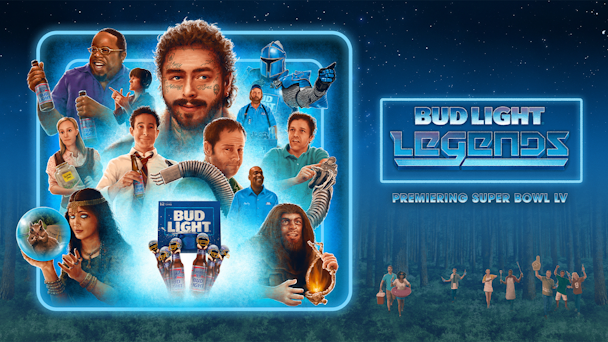Free beer for data: brands up the ante for first-party data collection
With the third-party cookie facing imminent doom, brands are dangling free beer, burritos, special perks and even cold hard cash in exchange for consumers’ personal, first-party data. And it’s only just beginning. Here’s what’s next.

Want free beer? It will cost you an e-mail address.
Consumers might get the feeling that brands sure are awfully generous these days. All of a sudden, there are plenty of offers, deals, sweepstakes and even the promise of delicious, free beer in exchange for an email address and other personal information.
While such tactics certainly aren’t new, what is new is the urgency in which brands are working to make one-on-one personal connections with consumers. Rapidly accelerating privacy legislation and browser blocking means marketers are nearing the end of being able to leverage third-party cookies for targeting purposes.
That’s why 88% of marketers say collecting and storing first-party data is a high priority during the next six to 12 months, according to a recent Merkle study. “More and more companies are trying to figure out ways to set goals for themselves like I want 20 million people in my database of first party IDs by the end of the year and 50 million by the end of 2025,” says Merkle global chief executive officer Craig Dempster.
Take for example, AB InBev’s Super Bowl activity. Lost amid Bud Light’s splashy, nostalgic spot and Budweiser’s accolades for not spending on an ad was the fact that both brands launched campaigns designed to collect consumer data. Bud offered every person of legal drinking age in the country a free Budweiser if they went to ABeerOnBud.com and provided their details before February 7. Bud Light, meanwhile, debuted its ’Bud Light Legends’ loyalty program. Just share your name, birthday, email address and zip code, check the consent box and you can become a member. Members receive points that can be exchanged for “I love you man” sneakers or the chance to win free beer for a year.
“We love communicating actively with our fans and consumers, we do a great job at doing that, via our social media platforms and handles,” says Joe Lennon, senior brand director, Bud Light. “But we certainly would love to be communicating them with them in more ways including email to keep them informed about what’s going on and help keep Bud Light top of mind for them.”
Securing a consumer’s email, and other data, can prove more valuable in the long-term than grabbing their dollars in the short-term, says Dempster. “You need to rethink the interaction. The sale, in some cases, is getting the data. It gives you the long-term opportunity to sell, and continue to sell, to that consumer.”
17 million Chipotle burrito fans can’t be wrong
For Chipotle Mexican Grill, the fact that it launched ’Chipotle Rewards’ exactly a year before the pandemic hit proved to be extremely fortuitous — and profitable. Chipotle relied on direct email communication with customers to alert them about its delivery options, digital offers and just to remind them why loved the brand in the first place.
Despite severe in-store dining restrictions, Chipotle’s 2020 revenue grew 7.1% to $6 billion. The engine behind this growth was digital sales which soared 174%.
“Our ability to get into the inboxes of people who want to understand what's going on with the brand is invaluable,” says Tressie Lieberman, vice president, digital and off-premise at Chipotle, “especially as things shifted with the pandemic and media and customer behavior is changing so rapidly.”
To kick off the rewards program, Chipotle partnered with Venmo to give away $250,000 to fans who signed up during a four-day promotional period.
Mastercard chief marketer Raja Rajamannar foresees brands increasingly paying customers for their data. The old model was “in exchange for content, the consumer gave their attention to commercial messages. [Now it’s shifting to,] if you want to get my attention, I’m not satisfied with just the content, I need money,” he says. “Data monetization is going to happen in very different ways.”
Chipotle’s Liberman says gathering consumers’ email addresses is one thing, but actually creating and maintaining a relationship is something entirely different. “We make sure we’re providing value. You’re one unsubscribe button away from losing that relationship.”
While offers are attractive, she says some of Chipotle’s best performing content is messages from CEO Brian Niccol “telling people about a new product, a new way to try their food or understanding the impact of what we’re doing to support farmers. These are stories that would be difficult to tell without a CRM program because you’re leaning on paid media and maybe not having as much of a captive audience, or people who care. That’s what I always think about: these people have raised their hands and said that they want to hear from us. We take that really seriously.”
Now, with parts of the world beginning to open up, there will be massive opportunities to collect and leverage first-party data as people begin to eat out, travel and resume their lives outside of their homes, says Iván Markman, chief business officer of Verizon Media. “We are looking at a year of reconnection. Like many, I’ve been locked up in Los Angeles for a while. As part of my travels, I was connecting with loyalty programs, connecting with news services, doing a host of things I haven’t done. That’s about to change. It’s going to be a very unique moment for the world of data and how we use it.”

